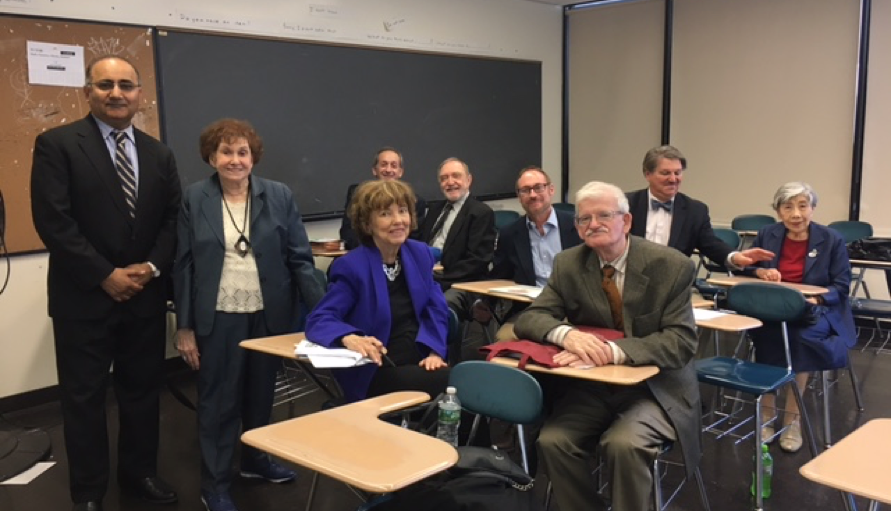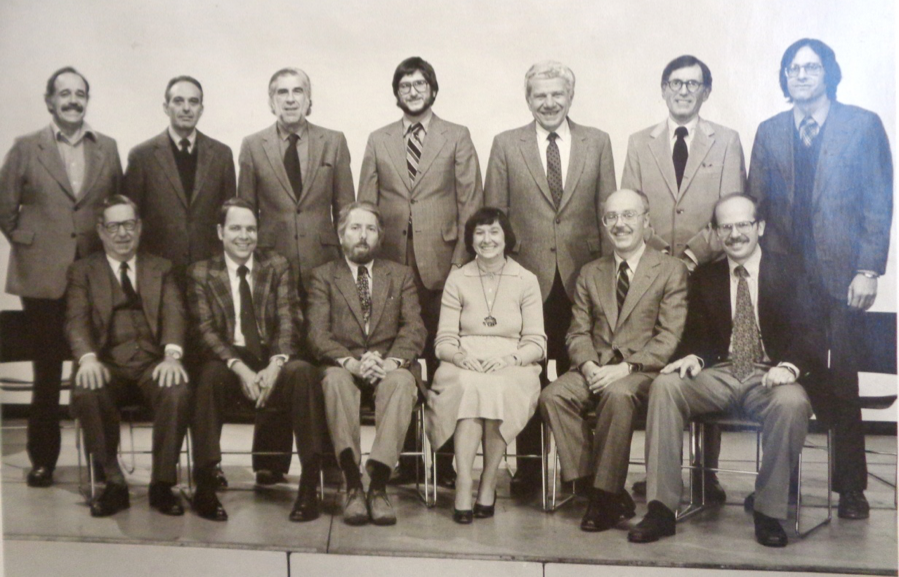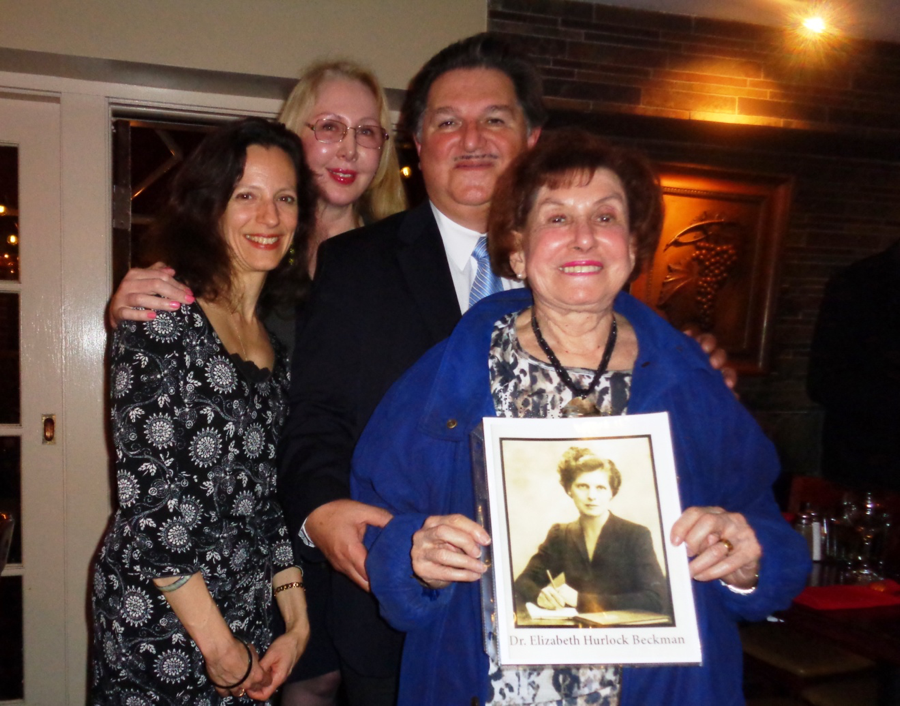By Harold Takooshian, Ph.D., Fordham University and CUNY'79
"How important are mentors?" For better or worse, the answer could not be more clear. What is more inspiring than a good mentor, or more miserable than a bad mentor? This experience likely shapes our entire career. Here, I share with GSTA students five points to consider about mentors.
1. Indispensible. A mentor is "a trusted counselor," a term that dates from Greek mythology, where far-away Odysseus entrusted his family to the care of Mentor. By any name, mentors have always been an indispensible part of formal education, from Plato's Academy to the Han dynasty in ancient China.
2. Inspiration. In April of 2017 at CUNY (photo 1 below), super-mentor Florence Denmark chaired a panel where 9 celebrated psychologists from many institutions spoke briefly on their own mentor, with a few notable results: (a) We all found ourselves inspired to hear these noted mentors describe with such affection the deep impact of their own mentor. (b) These mentors noted how they benefitted from more than one mentor, for different stages or parts of their career as a student, then ECP. (c) They agreed their mentor's support was pivotal for them. They would not have achieved so much without their mentors, and try to pass this on to their own students.
3. Variation. The 35 graduate psychology programs in Greater New York City (Bonet & Takooshian, 2015) have a well-earned reputation for being highly varied in their mentoring. At the negative extreme, faculty in some schools are rewarded for research more than teaching, so students need luck to find a caring mentor, and must struggle to earn their doctorate. At the positive extreme, faculty in other schools understand teaching and mentoring to be key roles, to build up their students. If we view these 35 schools are gardens, some emphasize weeding out students while others emphasize nurturing students--and most fall in between.
4. Legacy. I recall when a new PhD was just starting her teaching career, and looked visibly confused when a notoriously bad mentor cynically advised her, "They do it to you, then you do it to them." Fortunately, what is true in the negative, can be true in the positive as well--as we see teachers try to "get even" with their beloved mentor by becoming a beloved mentor themselves. In fact, CUNY alumna Elyse Goldstein (1979) published this finding from her 2x2 analysis, documenting this fact, that same-sex mentorships actually correlate with higher alumnus productivity after the doctorate.
5. CUNY-GC. It is no accident that CUNY-GC is the current home of the GSTA. Even when I was a student in the 1970s in GC, the entire campus and its 10-program psychology department were legendary for gifted faculty who combined teaching and research excellence (photo 2 below). Even the most busy professors like Florence Denmark and Morton Bard made it a point to join students at the weekly Wednesday colloquium. Though my mentor Stanley Milgram had an international reputation for research, he was a devoted teacher for his entire 24-year career, from 1960 through the day he died on December 20, 1984, four hours after he chaired Christina Taylor's dissertation defense (Takooshian, 2000). In fact, in my experience, it is the best researchers who make the best mentors (Takooshian, 1991).
References
Bonet, C., & Takooshian, H. (2015). Checklist of graduate psychology programs in Greater New York. Presentation to the 27th Greater New York Conference on Psychology.
Goldstein, E. (1979). Effect of same-sex and cross-sex role models on the subsequent academic productivity of scholars. American Psychologist, 34(5), 407-410.
Takooshian, H. (1991). Research, teaching, and the question of interaction. NYS Psychologist, 41(1), 44-56.
Takooshian, H. (2000). How Stanley Milgram taught about obedience and social influence. In T. Blass (Ed.), Obedience to authority: Current perspectives on the Milgram paradigm (pp. 9-24). Mahwah NJ: Erlbaum.
* Note: Harold Takooshian, PhD, is on the Fordham faculty since 1975, where he is Professor of Psychology, Urban Studies, and Organizational Leadership. He earned his PhD at CUNY-GC in 1979, and was elected a Fellow of the APA Society for Teaching of Psychology in 1990. Address any inquiries to takoosh@aol.com

Photo 1. At CUNY in 2017, 9 mentors described their great mentors (listed from left to right): Dinesh Sharma (SUNY), Florence Denmark (CUNY/Pace), Elaine Congress (Fordham), Leonard Davidman (NYSPA), Henry Solomon (Marymount Manhattan), Jason Young (Hunter), Uwe Gielen (St. Francis), Harold Takooshian (Fordham), Machiko Fukuhara (Tokyo)
(photo courtesy of Harold Takooshian)

Photo 2. CUNY-GC Social-personality faculty around 1974.
(photo courtesy of Michelle Fine)

Photo 3. One legendary psychology mentor was Professor Elizabeth Hurlock Beckman, whose daughter Gladys was inspired to launch an annual $25,000 Mentor Award in her mother's name. One of Dr. Beckman's students at Penn was Florence Denmark (later of CUNY-GC), who received the 2013 Beckman Award. The photo below shows five generations of mentors: Drs. Beckman, Denmark, Takooshian, Linda Hamilton (of the NYC Ballet), and Valerie Radetzky.
(photo courtesy of Harold Takooshian)